Wes Anderson, once an up-and-comer making waves for his visual flair and droll sense of humor, is now firmly established as one of the most prominent working American filmmakers. It doesn’t feel quite right to consider him an “indie darling” anymore, especially considering how star-studded his films have become, and none more so than his latest, The French Dispatch. When a director’s work is particularly distinct, as Anderson’s certainly is, it’s fascinating to see whether they can innovate and evolve while remaining true to their signature directorial style, or if perhaps they choose to eschew that style to give us something unexpected.
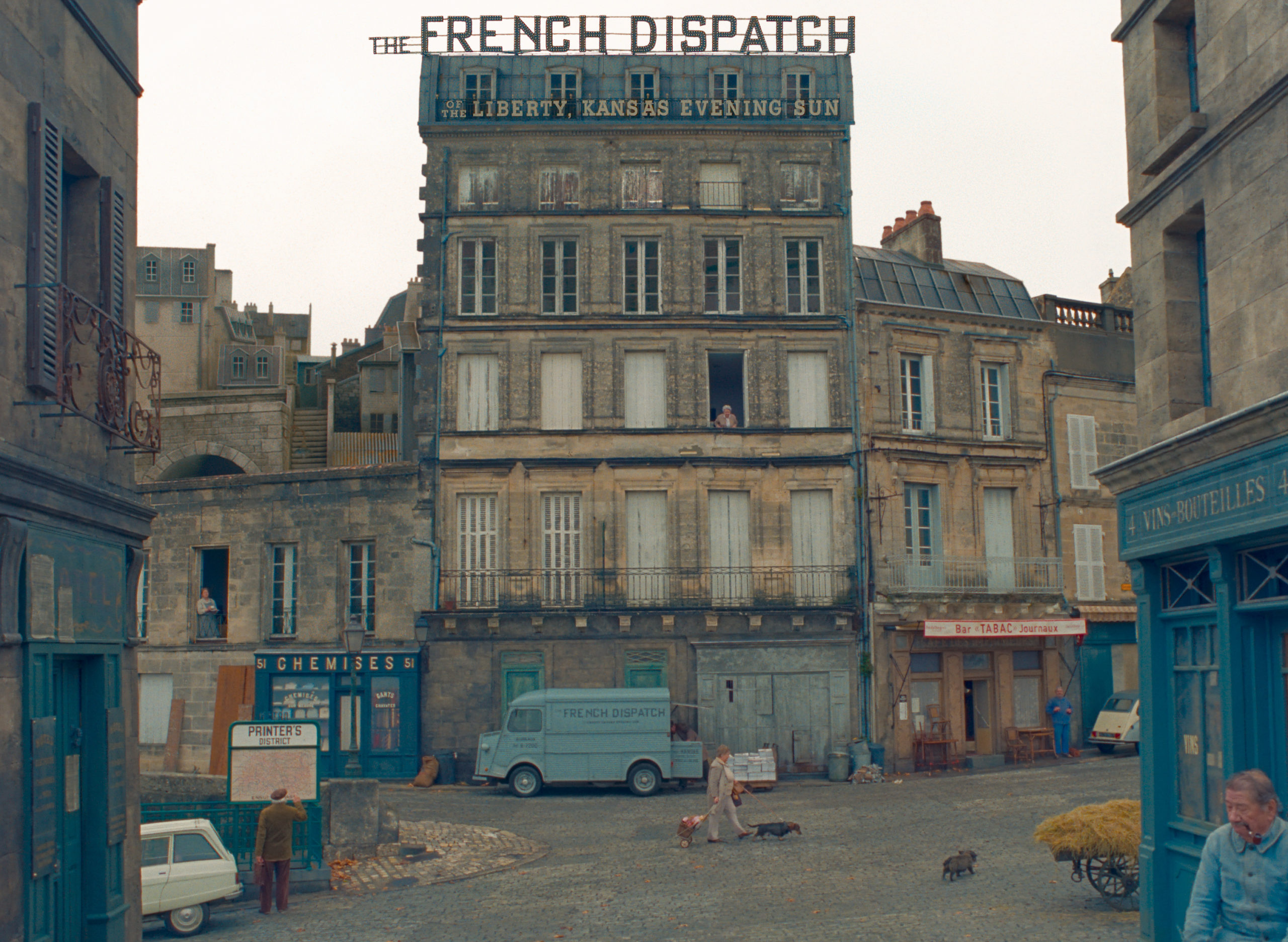
In the case of The French Dispatch, it feels like a Wes Anderson film through-and-through, but it also doesn’t feel like he’s simply giving us more of the same. Starting with The Grand Budapest Hotel, it seems Anderson has entered a new phase of his career. The visual flair is still there, but it feels less showy. The symmetry, the close-ups, the intricate production design—these things are not toned down in Grand Budapest, but they are more tightly integrated into the film in such a way that they feel more natural, more a part of the background. The showmanship is taking a back seat to the story, and everything feels a bit more organic.
That trend continues here in The French Dispatch, with Anderson giving us a series of densely plotted and quickly paced vignettes, pausing very intentionally at times to allow moments to land. And it’s incredibly effective. When compared with Grand Budapest, the tone and pace of this film are very similar, but what’s different are those emotional beats—they’re much more compelling and memorable here. Since the beginning of his career, the extravagant visual touches and deadpan performances Anderson brings could sometimes have the effect of keeping the viewer at arm’s length as a passive observer. In contrast, the experience of watching The French Dispatch feels more immersive and personal than anything he’s made before.
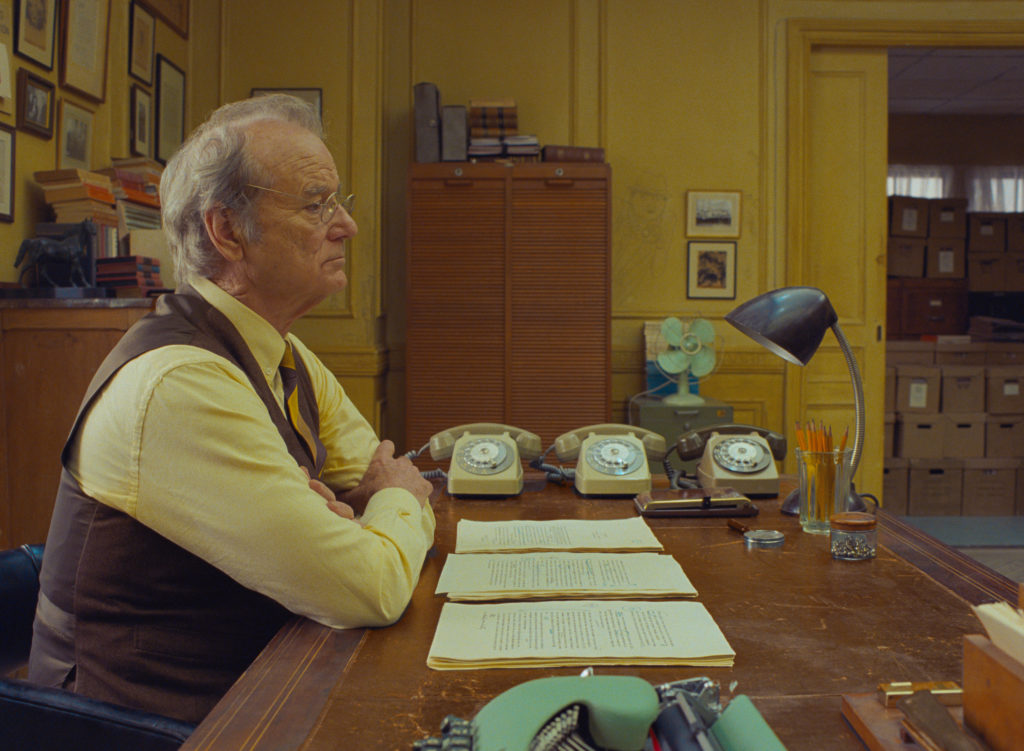
The film follows the titular Dispatch, which is a journalistic publication in the tradition of The New Yorker but transplanted to the fictional city of Ennui, France. At the film’s outset, the Dispatch’s founder and editor, Mr. Arthur Howitzer Jr. (Bill Murray) passes away, and we learn that the publication is set to fold along with him. We then dive into the three articles to be published in the final edition of The Dispatch, each written by a different character and featuring diverse ensembles and peculiar stories— and what wonderful stories they are. Anderson based some of the characters and accounts on real people and events, but if (like me) you know none of these parallels going into the film, you’ll enjoy it all the same.
The Vignettes
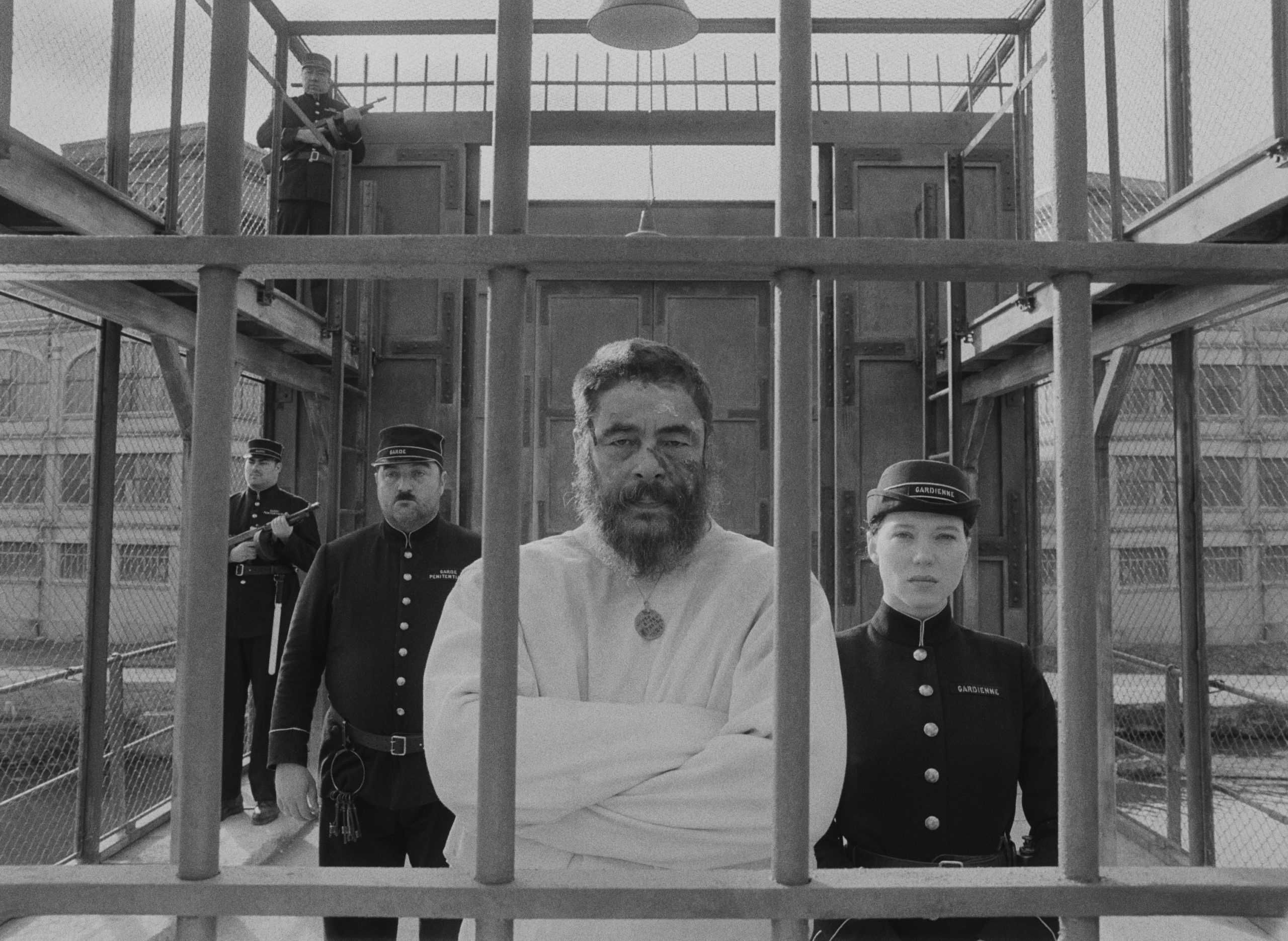
The first vignette, entitled “The Concrete Masterpiece” features Benicio del Toro as a painter who gains notoriety despite being incarcerated in Ennui’s prison, and the way the story unfolds sets the stage for the film’s unusual narrative structure. Not only is the film essentially an anthology, divided into discrete chapters, but each section is told from a variety of vantage points. Ultimately, the Dispatch writer responsible for the story is the narrator, but in the case of the “The Concrete Masterpiece,” the story jumps around in time with even the narration itself deriving from different points in the story’s timeline. Tilda Swinton plays J.K.L. Berensen, the writer of this piece, and some of the narration seems to be happening in the “present,” i.e., the time that the writer is submitting the story to Arthur Howitzer prior to his death. But, we also jump forward in time to see an older Tilda Swinton giving a lecture on the history of the artist’s life and most prominent work to fill in some of the details. It’s a very creative way for the plot to unfold.
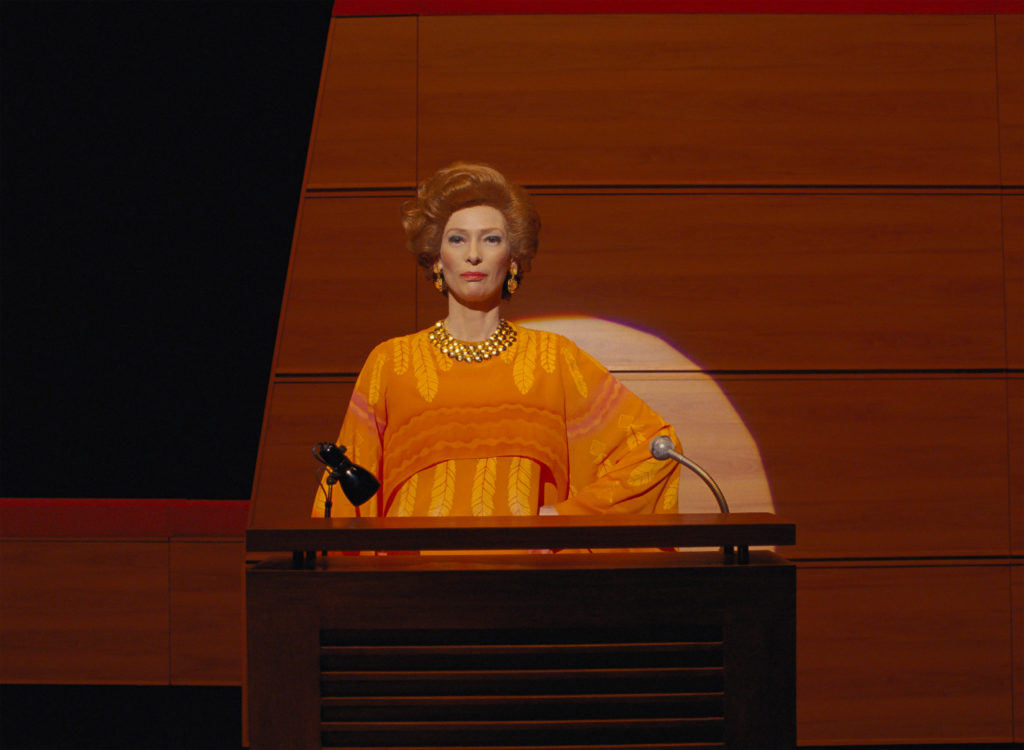
The main thematic thrust of this section deals with the sticky relationship between art and commerce, commenting on how we consume art, how artists get discovered, and the mysterious nature of inspiration. Del Toro is delightfully scuzzy as the artist Rosenthaler, and Léa Seydoux gives one of the standout performances of the film as his muse. Adrien Brody plays Julien Cadazio, a somewhat skeevy art dealer who champions Rosenthaler’s work, which would otherwise have faded into obscurity.
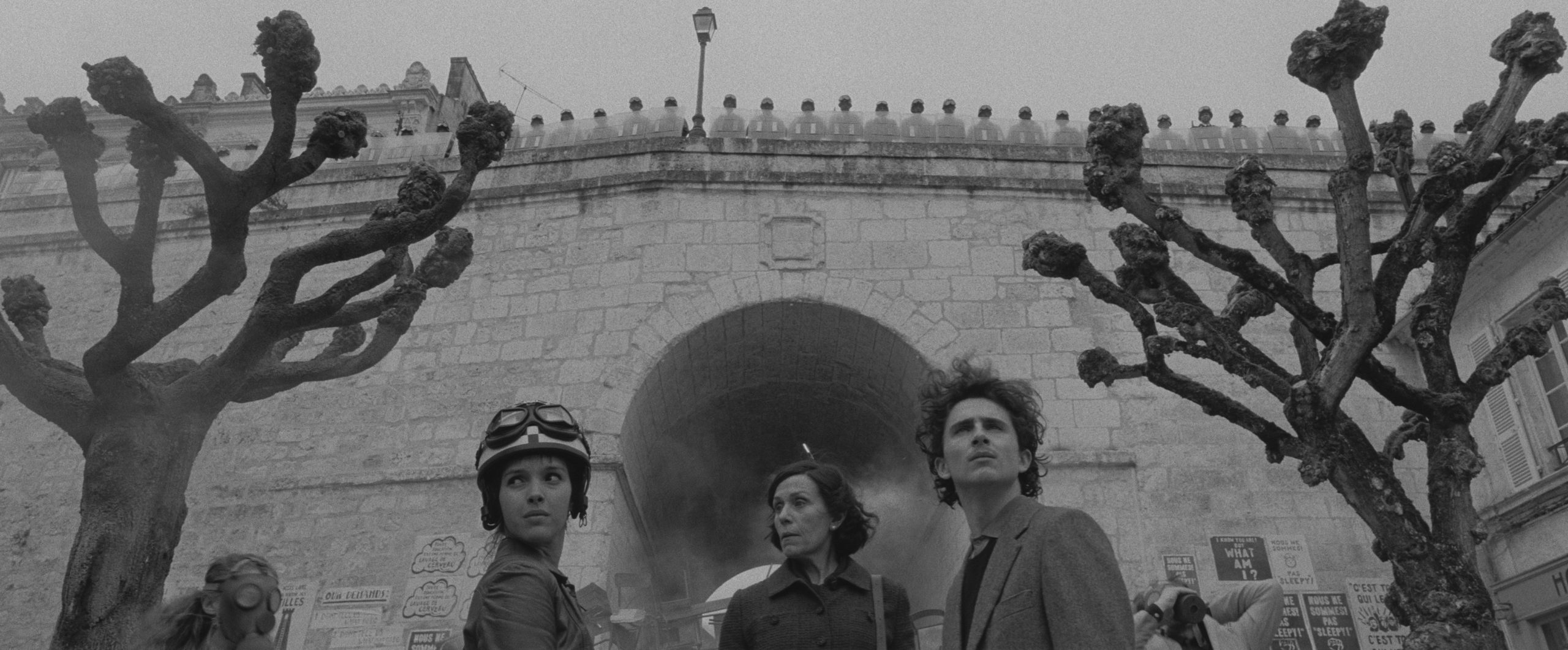
Next up is “Revisions to a Manifesto” by Lucinda Krementz (Frances McDormand), which follows Zeffirelli (Timothée Chalamet), his group of student revolutionaries, and his unexpected romantic entanglements. Most notable in this section is the theme of journalistic integrity and whether such a thing even exists (notably, all the writers in this film become part of the story they are writing). Zeffirelli and his fellow rebels are sometimes unclear on what exactly they’re rebelling against, and he sets out to write a manifesto to set the record straight. The story also deals with the nature of revolution and features a hilariously frumpy Christoph Waltz.
In of the film’s many asides, Frances McDormand explains the general sense of ennui felt by the revolutionary teens by recounting a scene from a play. In it, a child actor eloquently explains why the current capitalist systems are inadequate, arguing that it’s an act of bravery to refuse to go quietly into the life others have set out for you. This serves not only as the vignette’s most moving moment, but also argues indirectly for the value of a good writer. Our Dispatch journalist, McDormand’s Ms. Krementz, understands that the best version of her story brings in context from far away to bolster the piece. Likewise, Wes Anderson as a storyteller understands the value of side-stories and parentheticals to create a more fully realized world.
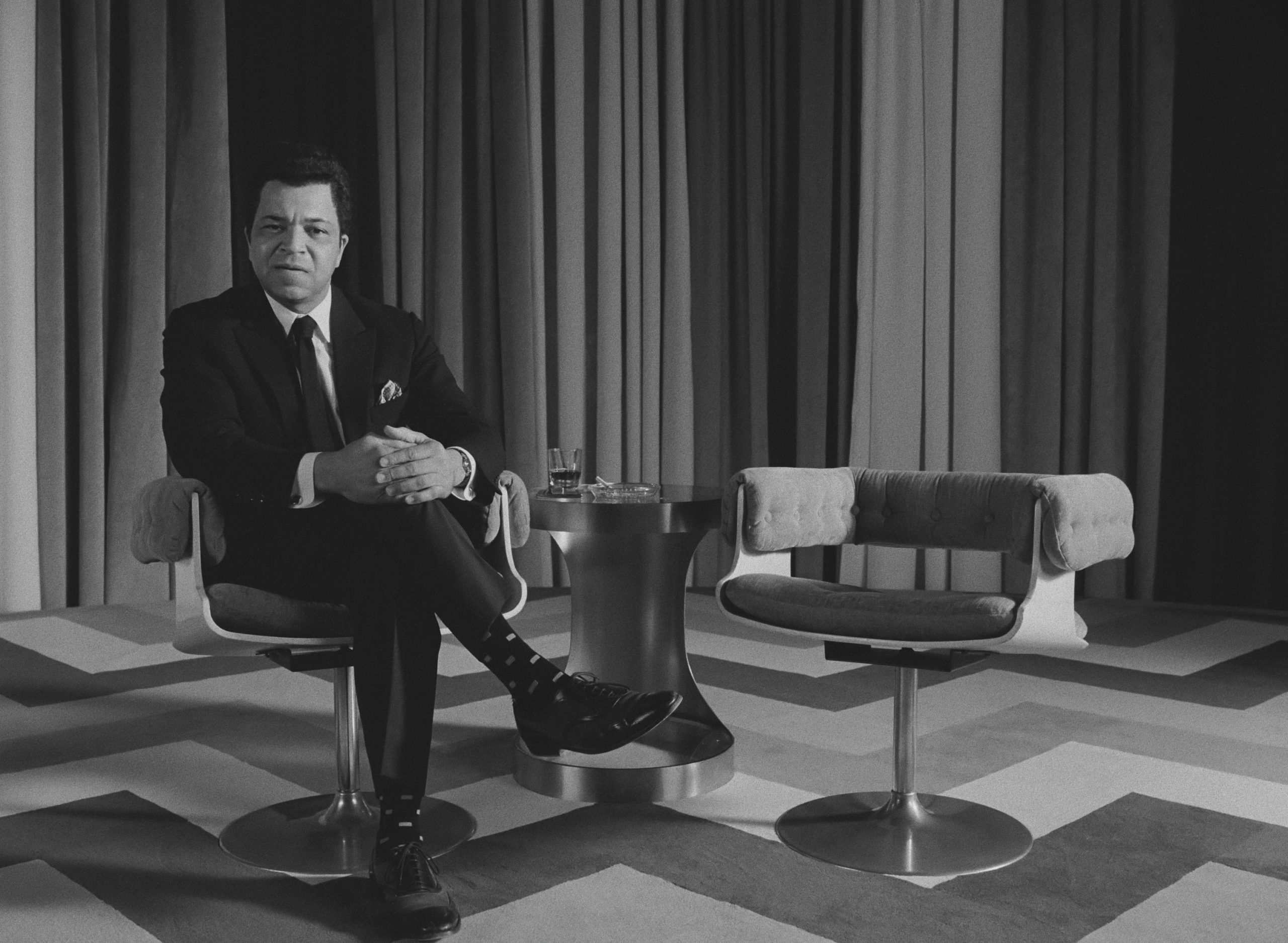
Finally, a writer named Roebuck Wright recounts his story, “The Private Dining Room of the Police Commissioner.” It’s a caper involving a chef, a kidnapped child, and Roebuck Wright himself, played by Jeffrey Wright in one of the best performances of his career. Wright recounts the time he was invited to dinner by a senior police officer on the same night the officer’s son was kidnapped and held for ransom. The ensuing rescue operation is downright zany, unfolding partially in a striking animated sequence before leading to one of the film’s most touching moments. Roebuck Wright and the subject of his story, Chef Nescaffier (Stephen Park), share a brief but significant conversation on the subject of living as foreigners, which serves as a lovely coda to this section and is perhaps the standout moment in the entire film.
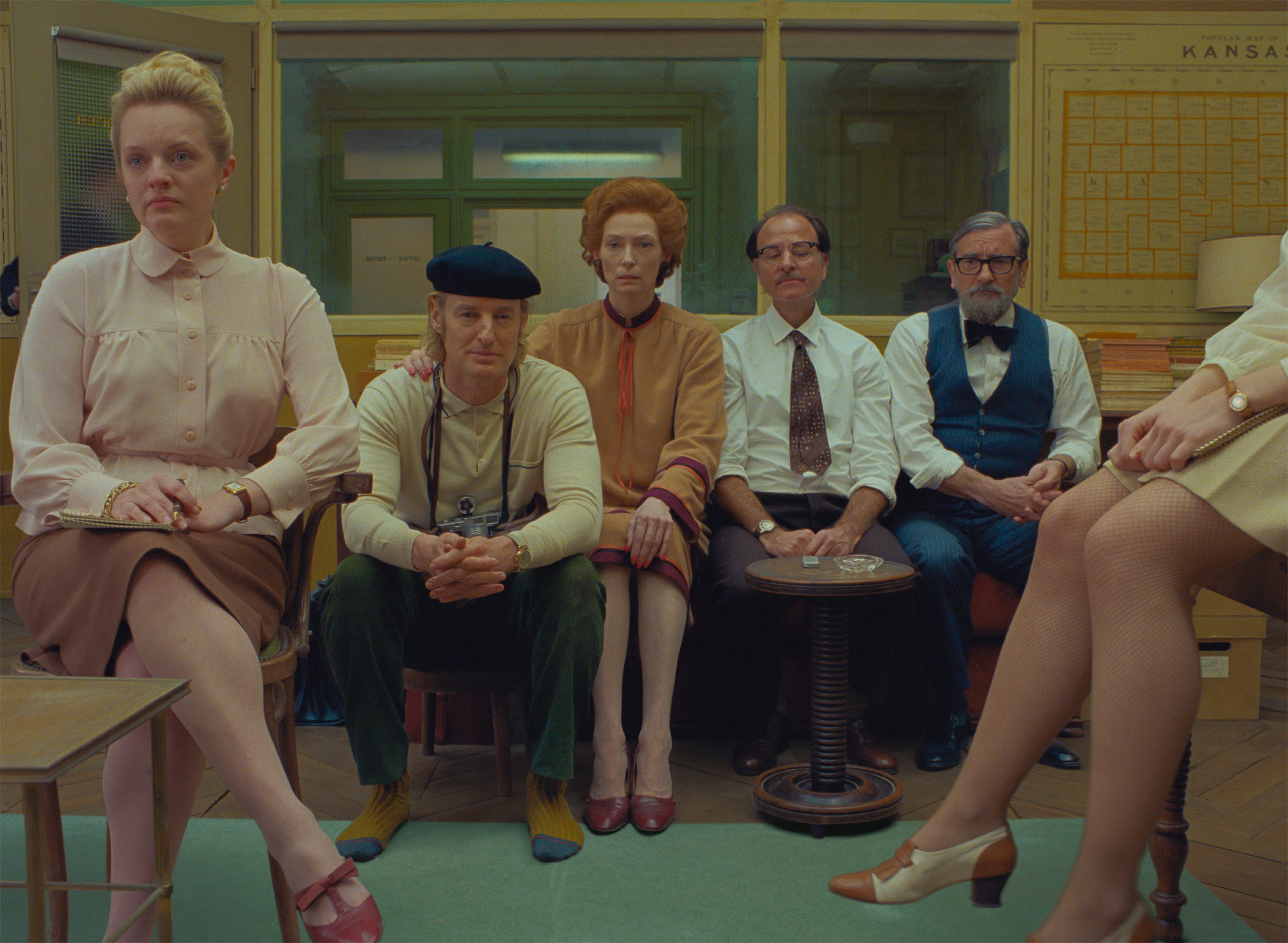
Woven in between and within each of these primary vignettes are interactions between Dispatch staff members, all of whom are introduced at the top of the film, as they review, edit and comment upon the story at hand. This construction, along with the carefully worded and eloquent narration of the articles themselves, makes the film feel thoroughly literary, filled with dense and flowery writing sure to reward repeat viewings. All of this is set to another wonderful score from longtime Anderson collaborator Alexandre Desplat, making this film’s 103-minute runtime fly by.
Wes Anderson’s Evolving Style
Returning to the question of Anderson’s evolving style, one of the key elements that has changed over the years is the nature of the performances he’s eliciting. This started perhaps with Ralph Fiennes, whose performance in The Grand Budapest Hotel as Monsieur Gustave H. is both broadly comedic and warmly personal. This stands in contrast somewhat to many of the more wry and deadpan turns that defined so much of Anderson’s early films. (I think often of Bill Murray’s Herman Blume in Rushmore, lamenting dryly, “Never in my wildest imagination did I ever dream I would have sons like these.”)
The characters in The French Dispatch, like Gustave H. before them, are rich, human, and charming, which works to bring together the many disparate filmmaking elements that make up this eclectic film—the score, the set design, the far-reaching plot, the wordy narration— and make it feel like a unified whole despite its fractured structure. The performances, along with the thematic connections that bind the vignettes together, lead to a film feels that feels complete in a way that’s intensely satisfying to experience.
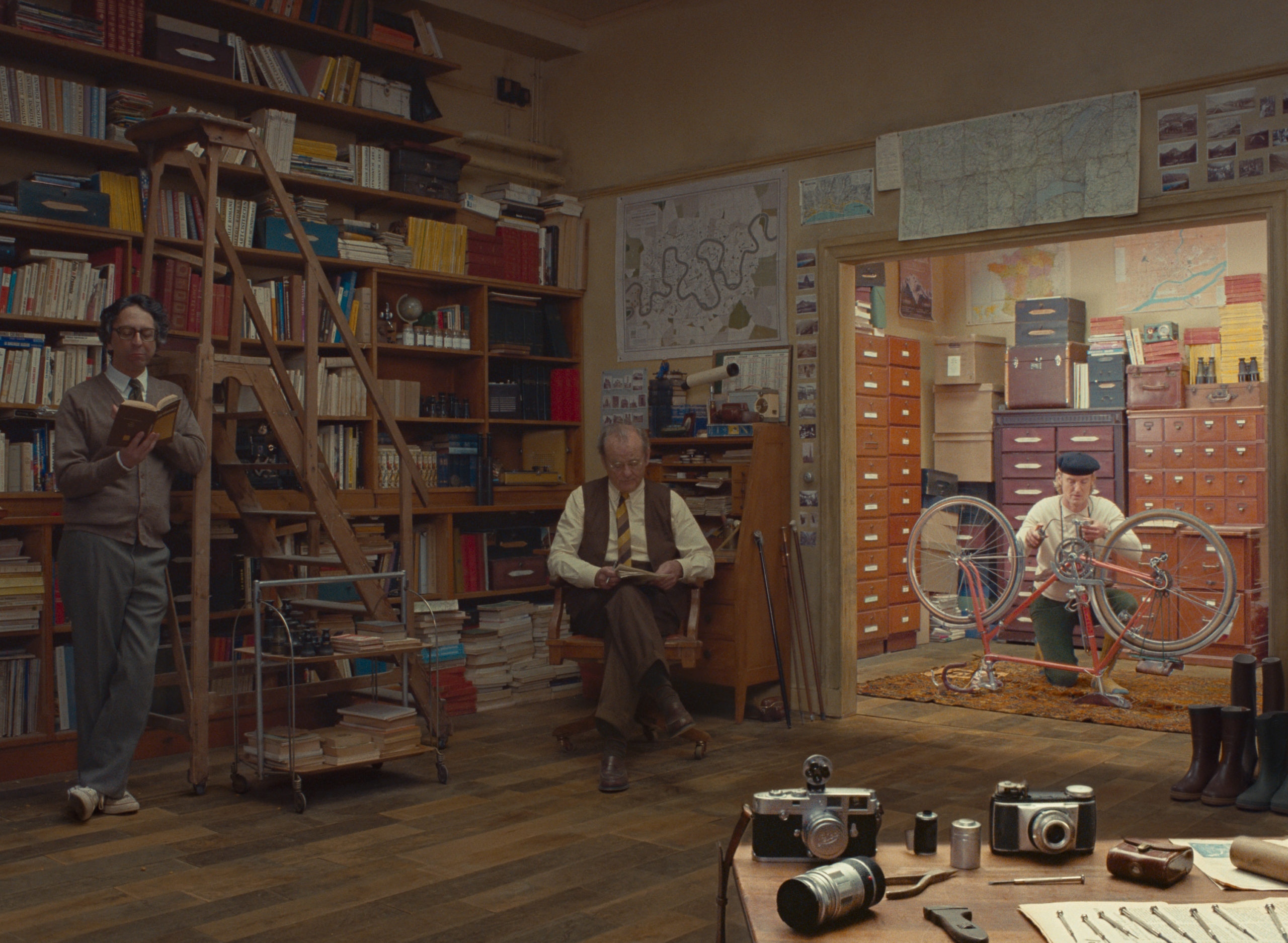
The French Dispatch is a quick-witted and pleasant ode to creativity and the written word. Always charming and at times touching, the film serves as a sophisticated celebration of culture and storytelling that demands repeat viewings, not only to unearth the many delights of its dense narration but also to re-experience the many, many wonderful performances that anchor it, keeping it just grounded enough. The film also stands as a complex meditation on the nature of art, arguing that even the least known artists should take their work seriously, and that great value lies in appreciating the furthest corners of human culture. The French Dispatch is a masterpiece, standing out as the greatest film in Wes Anderson’s already remarkable body of work, and it is certainly one of the very best films of the year.
The French Dispatch is now playing in theaters.






